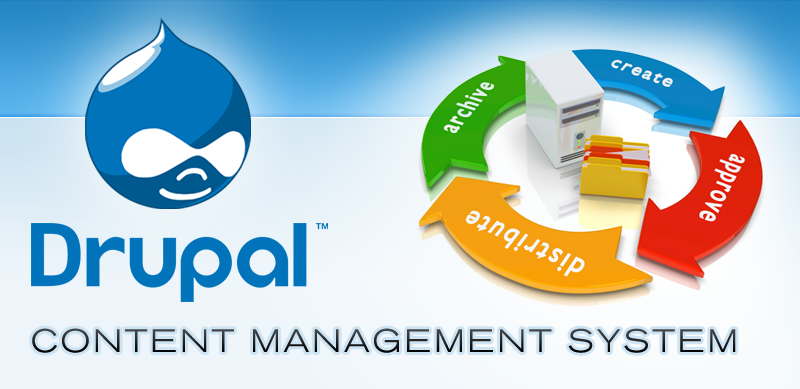cms
CMS Wars – WordPress vs Drupal – 2019
WordPress has come a long way since it was launched back in 2003.
From a simple blogging platform it has evolved into a powerful and highly customizable CMS, a fully fledged complex website solution. Moreover, over the past five years it has gained a significant share of the CMS market, with about 60% of all websites running it as their CMS.
While competing CMS solutions, like Drupal and Joomla have continued to trend downwards, WordPress has been gaining worldwide appreciation from both, end users and developers thanks to a continuous process of innovation.
Let’s take a closer look at the plain facts, to understand the CMS market evolution up to 2019, according to statistics:
- MS Market share: 60.2% WP, 6.3% Joomla and 4.4% Drupal.
- Number of live sites (estimated): 75.000.000 WP, 2.000.000 Joomla, 1.000.000 Drupal
- All web: 34% WP, 4% Joomla, 2% Drupal
As you can see above, the numbers are pretty astonishing.
As active participants in the design and development space for more than 10 years, we’ve been working with, customizing and implementing all of the above systems into client projects.
Each of them has their own strengths and weaknesses depending on project, however, as it stands today, WordPress is by far the most intuitive, versatile and cost effective CMS out of the box.
From our experience, in the last few years, a lot of Drupal CMS projects have been replaced by WordPress. We do migrations from Drupal to WordPress regularly now, a major change from a few years ago, when the opposite was a lot more common.
Businesses and developers slowly moved away from Drupal and focused on WordPress, due to its increased ease of use, modularity and highly efficient plug and play plugins, intuitive publishing system and content administration.
While each new version of WordPress focuses on enhancing performance, flexibility and usability, bringing new features and simplifying administration and development, the latest version of Drupal, Drupal 8, really managed to mess things up.
Drupal not only changed the whole implementation model for developers, but became more difficult to work with overall, buggy and with a lack of basic core functionalities. One example is the need to write custom code or install third party modules, just to open a link in a new browser tab.
In a stark direct contracts to Drupal, WordPress offers extensive flexibility and versatility and comes with ton of features out of the box, that cover almost any functionality a website might need.
It’s pretty easy and straight forward to work with from an end-user perspective: if you need an online store, you just install and configure WooCommerce; you need a forum or community, just add BBpress or BuddyPress to the mix. Easy, reliable, clean development, intuitive administration system, reliable support.
Moreover, as said before, using WordPress to power a website is much more cost effective than using pretty much any other CMS currently available. The development cycle is not that time consuming, testing is cleaner and easier, updates and upgrades can be done on the fly and without extensive maintenance and downtime.
Also, the overall back-end administration system is more user friendly and most features are focused on usability.
In summary, the advantages of using WordPress are many, from lower development costs, an easy management and publishing system to multiple functionalities. WP can be used for basic presentation sites, as well as advanced custom and complex web applications, forums, data collection platforms, e-commerce stores and more.
We highly recommend it here at VerticalWave and if you happen to need some help with a new or existing website project, don’t be shy and give us a shout.
Cheers.
Who Uses Drupal?
As Drupal is one of the most versatile content management systems today, it is widely used for corporate, e-commerce, government and a wide range of other projects and sites. Drupal is a highly secure, highly scalable CMS which empowers web presence for a multitude of projects.
Flexibility, easy administration, possibility to integrate with existent and future modules and pieces of code, intelligent web publishing, mobile friendliness, huge support community and multilingual capabilities are just a few of the features that make Drupal such a popular and widely used CMS.
Let’s take a look at who uses Drupal:
– The White House: www.whitehouse.gov
– The Economist: www.economist.com
– Oxfam: www.oxfam.org
– The French Government: www.gouvernement.fr
– Eric Clapton: www.ericclapton.com
– Fujifilm: www.fujifilm.com
– The British Government: www.direct.gov.uk
– The Louvre Museum: www.louvre.fr
– Ikea: www.ikea.com
– Chris Rock: www.chrisrock.com
– ING: www.ing.com
– Rafael Nadal: www.rafaelnadal.com
And the list goes on. As you can see, governments, major institutions and corporations and famous artists use and trust Drupal. This makes it one of the most legitimate and trustworthy CMSs on the market.
Drupal – A ROI Centered CMS Solution
By now we already know that Drupal is a very efficient content management system, able to meet personal and corporate needs, a reliable way to empower your presence on the internet. Its modules are highly scalable and provide you with access to the latest web technologies.
But Drupal is much more than a simple and efficient CMS. It is a tool that will boost you ROI rate from the first moment you deploy your website on the internet. Let’s see how this is possible.
First of all, Drupal is easy to configure and does not require dedicated admins to run the website. This means that after the site is created, you or anyone else can manage it without any hassle. With little training, you are in complete control of your website.
At the same time, Drupal has powerful SEO modules that can help you increase your visibility on the internet at a fast pace. The better the visibility, the more visitors you get imp source. Running SEO campaigns for a Drupal sased website is very efficient. And this translates into cash. Drupal is also easy to integrate with social media, so you can communicate easily with your friends and customers via Facebook, Twitter or any other media platform.
Drupal is a mobile friendly CMS. By using it, the development team can create mobile versions of your website in a short time, or design adaptive or responsive sites that can be managed very easily. This means that you don’t need to create separate apps or spend tons of money on mobile design.
Drupal websites are also easy to maintain, and do not require additional development when it is time to update them. Security updates are also easy to implement and very cost effective. Thanks to its large support community, Drupal is constantly evolving and grants you access to new and rick open source features that will make your site shine on the web.









